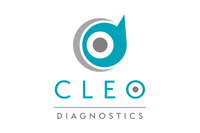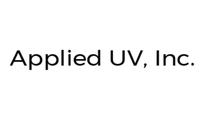The most recent approval on Wednesday was for the company’s new pain pump, the SynchroMed 2 my PTM. Patients use the device to manage drug delivery for chronic pain, with limits sets by their physician.
Medtronic (NYSE:MDT) and its investors can celebrate two FDA approvals this week.
The most recent approval on Wednesday (October 24), was for the company’s new pain pump, the SynchroMed 2 my PTM (personal therapy manager). Patients use the device to manage drug delivery for chronic pain, which is set to limits by their physician.
The other product Medtronic received approval for on Tuesday (October 23) is a stent graft system, called the Valiant Navion. This device allows a new range of patients with small iliac arteries, which were not previously eligible for the procedure.
An advantage to the pain pump versus oral solutions such as opioids is the drug pump provides long-term pain relief but at lower doses and with fewer side effects.
“Enabling patients to adjust their treatment provides them with some independence to control their pain and gives me confidence knowing that they are getting pain relief without oral opioids, John Hatheway, a provider of the pain pump and owner of a clinic said in Wednesday’s press release.
In a chart review, patients with the chronic pain which transitioned to this targeted drug delivery eliminated systemic opioid use by 83 percent within one year.
Opioid use disorder has been the leading cause of overdoses in the US and Canada for years, most of which begins with prescription abuse.
Medtronic’s pain pump and catheter are implanted under the skin and deliver medication to the fluid around the spinal cord. Clinicians have been able to prescribe reduced doses of medication and can prescribe more tailored drug delivery to each patients’ needs.
The device works through a Samsung’s (KRX:005930) J3 smart device via a collaboration between the two.
Patients eligible for this system are those that haven’t had successful treatments or experienced serious side effects with oral medications.
This system allows patients to control the medication according to their personal needs of maintaining comfort during the chronic pain. In this case, chronic pain lasts more than three to six months. This disabling condition affects all parts of patient’s daily life, including: work, sleep, physical activities and eventually overall quality of life.
According to the same press release, US$635 billion is lost annually from the cost to treat chronic pain and costs lost from productivity, had patients been without the pain.
Moving onto the second approval from Tuesday, about the stent graft system. As mentioned, this procedure was previous limited for patients with small iliac arteries. Previously, these patients would be required to undergo other procedures, but this FDA approval this as an alternative less invasive procedure.
The system repairs lesions from descending from the thoracic aorta, for numerous problems such as ulcers and aneurysms.
A lower profile is the main differentiating factor for the new product versus the previous, the Valiant Captivia. This is what allows the product to work on patients with the smaller arteries. The product also features a new CoveredSeal configuration.
Approval for this product was based on Medtronic’s study with 87 subjects over 30 days to reach the primary endpoint.
Medtronic is one of the world’s largest medical technology companies which has diversified sectors such as cardiac and vascular, pain management, minimally invasive therapies and more.
Investor takeaway
Over the trading period between Tuesday and Wednesday, Medtronic’s share price decreased 2.3 percent to US$91.47.
TipRanks doesn’t show any recent analyst reports, but from previous reports the site predicts Medtronic’s share price could increase to US$120 or reach a low of US$84 in the next six months.
No launch dates have been announced for the approved products, but investors can monitor upcoming quarterly financial results and news for updates.
Don’t forget to follow @INN_LifeScience for real-time updates!
Securities Disclosure: I, Gabrielle Lakusta, hold no direct investment interest in any company mentioned in this article.



